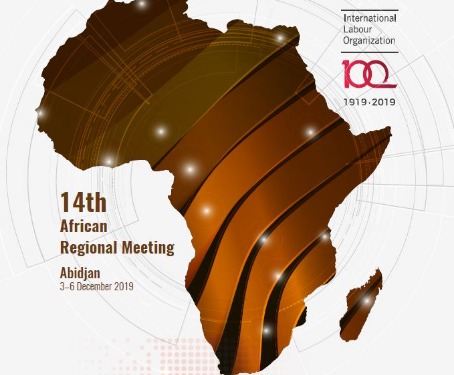African delegates have ratified the Abidjan Declaration betting on it to shape the future of work in the continent.
For instance, African countries commit to creating a human-centred approach to future of work that incorporates social justice.
This was during the 14th African Regional Meeting (AFRM) that brought together representatives from 49 African countries in Cote d Vore.
The Abidjan declaration identifies serious concerns such as inequality, unemployment, and under-employment, youth employment, child and forced labour, migration, and social protection.
The Declaration calls for the shaping of an African Decent Work Agenda, with a focus on five core priorities:
- Making decent work a reality for Africa’s youth, developing skills, technological pathways and productivity for a brighter future in Africa, transforming the informal and rural economy for decent work, respecting international labour standards, promoting social dialogue and gender equality.
- Strengthening the capacities of all people to benefit from the opportunities of a changing world of work.
- Strengthening the efficiency of the institutions of work to ensure adequate protection of all workers.
- Promoting inclusive and sustainable economic development and growth, full and productive freely chosen employment and decent work for all.
- Strengthening synergies between the ILO and institutions in Africa.
The Abidjan Declaration calls for investment in education and training, tackling gender inequality and discrimination, ensuring rights for youth, extending social protection, supporting the private sector, in creating economic growth and jobs, promoting productivity and technological pathways for decent work, as well as entrepreneurship and social dialogue (including cross-border).
Delegates requested the ILO to develop an implementation plan for the Abidjan Declaration, to be presented to the 338th Session of its Governing Body in March 2020, prior to a mid-term review scheduled for 2021.




